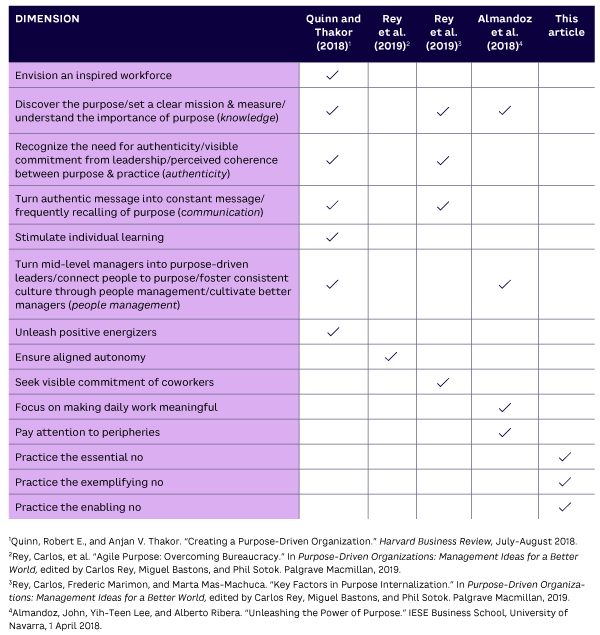According to Ratan Tata, former CEO of the Tata Group, purpose is “a spiritual and moral call to action; it is what a person or company stands for.” The power of articulating purpose lies in providing employees with a clear sense of direction, a set of shared priorities, and the inspiration to go the extra mile in service of purpose-driven goals, which should ultimately be good for profit.
Table 1 summarizes key insights offered by researchers and practitioners on what needs to be done to create and sustain purpose in organizations. Notably missing from this list is the ability to say no to purpose-diminishing decisions, activities, and engagements.

Empowered Refusal
Prior research describes empowered refusal as a way of saying no that stems from the identity and underscores the value of an empowered no in both interpersonal and self-regulatory contexts. This research demonstrates that empowered refusal facilitates relationship management, reputation management, and goal pursuit.
In an organizational context, purpose is akin to identity.
We describe empowered refusal as a way of saying no that aligns with the organization’s purpose. The central thesis of current research is that to operate with a singularity of purpose requires every individual in the organization to have clarity about which actions and decisions align with that purpose and which do not.
The goal of empowered refusal is to be true to espoused organizational values that are reflected in purpose. As such, empowered refusal is an essential skill that organizations need to develop to align their actions and decisions with purpose.
Implementing the ideas in Table 1 is an excellent starting point for leaders committed to driving purpose in their organizations, but we don’t feel it is enough. We underscore the importance of matching espoused values (purpose) with enacted values (decisions and actions) by fostering a culture that empowers individuals to wield the power of no in service of scaffolding purpose.
[For more from the authors on this topic, see: “Please Say No! How Empowered Refusal Upholds Purpose.”]




